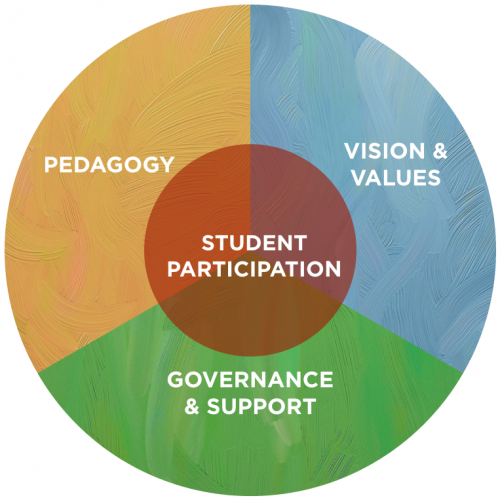When the Viking settlers came to Iceland in the late 800s it was to find new challenges so that their way of living could be strengthened. Some settled and survived but even so they needed goods and expertise from their cousins on the mainland. This is still the case in 2016 as the Nordic countries collaborate in many areas supporting networks and projects through common funds.
One such fund is Nordplus Higher Education (HE) whose programme serves as a framework for eliciting the ideas of those working in HE across the region and putting them to work. Some of its objectives are:
- To strengthen and develop Nordic educational cooperation and contribute to the establishment of a Nordic-Baltic educational region;
- To support, develop, draw benefit from and disseminate innovative products and processes in education through the systematic exchange of experiences and best practice;
- To contribute to the development of quality and innovation in educational systems for lifelong learning in the participating countries by means of educational cooperation, as well as cooperating with workplaces, about development projects, exchanges and building of networks.
In 2013 a group of scholars several of whom knew each other from earlier Nordic cooperation developed a project proposal called ActSHEN short for Action for Sustainability in Higher Education in the Nordic region. This proposal was funded by Nordplus HE for the period 2013-2016.
One product of the project was to produce a set of case studies reflecting not only our work and reflections but also our own development as we took part in and constructed new activities throughout the development project.
Throughout the project we developed and then followed a set of principles. First, a set of three principles, knowledge, respect and understanding which were set out in the 2013 application. These three function at the level of the student, the classroom/school and the community.
Next, a revised set, known as the Helsinki principles, were developed at an ActSHEN meeting in June 2014 in Helsinki, outcomes, pedagogy, management and student influence. These four categories provided guidelines for the development work carried out over the next 18 months by and for ActSHEN.
Finally, near the end, we felt that we would benefit from reviewing the principles. Stephen Sterling agreed to spend time with us in Helsinki and under his guiding hand in early March 2016 what we now call the Helsinki Framework was developed. The Helsinki principles morphed into a framework with three principles all underpinned by student influence on sustainability education.

The Helsinki framework, which has guided the work of ActSHEN and expanded its value.
This is the story of the three-year ActSHEN project and developers of lessons which give students more influence i.e. more voice and more choice. You can read about the way the project developed and some signicant changes along the way. We hope that you enjoy the cases and that you will be able to use some of the ideas in this record of our work.
Allyson Macdonald, in Reykjavík, December 2016
On behalf of all the ActSHEN project members